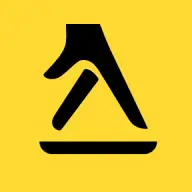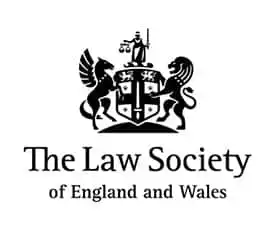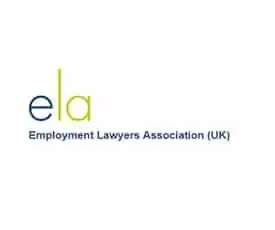The Solicitors Regulation Authority (SRA)
The Solicitors Regulation Authority is one of the regulating bodies in the United Kingdom that oversees different legal professionals. If you are thinking about becoming a solicitor or about hiring one, you need to know what the SRA does and what it stands for. It’s important to understand what the SRA does, who they regulate and what they are not able to help you with.
Who are the Solicitors Regulation Authority?
The Solicitors Regulation Authority or SRA is one of the many regulatory bodies within the legal profession.
The SRA will regulate solicitors and law firms in England and Wales as well as non-lawyers who are employees or managers of the firms that are regulated.
The SRA will also regulate other types of lawyers such as RELs or registered European lawyers and other registered foreign lawyers.
It is important to note that the SRA is not the only regulatory body within the legal profession. There are other regulatory bodies that will oversee other types of legal professionals. However, the SRA will fit with these other regulatory bodies to create an overall regulation network.

What The SRA Does
The Solicitors Regulation Authority is in charge of creating a Code of Conduct and Principles for the legal professionals that they regulate.
The regulated professionals will need to follow this code and the principles in order to provide a legal service to the general public.
The approach to regulations taken by the SRA is outcomes-focused and risk-based which ensures that firms and individuals operate with integrity and in the best interests of their clients.
If the SRA finds that a regulated solicitor or law firm has breached the principles and code of conduct, they do have the authority to take enforcement action against them.
The legal powers that the SRA has to vary and will be used according to the severity of the breach. The risk posed to the legal profession and the general public will also be considered when enforcement actions need to be taken.
Some of the legal powers that the SRA have include issuing warnings against further conduct breaches, imposing disciplinary sanctions which will include fines and controlling how the individual or firm practices.
The SRA is also able to refer the conduct of the firm or professional to the Solicitors Disciplinary Tribunal for further action or revoke the recognition of the firm. The most serious action that the SRA can take is to close a law firm with immediate effect which is generally called an intervention.
If a firm has been closed by the SRA, the clients who have already paid the firm will be able to apply to the SRA for the money. Documents will also be returned to clients, but reduced and refunded legal fees will not be applied.
The SRA is also in charge of regulating individuals who are qualified and insured to provide any legal services.
This regulation is done through the setting of qualification standards, monitoring the performance of training organisations and mentoring students who wish to become solicitors.
The SRA will also assess the suitability and character of the individuals they regulate and administer the Roll of solicitors. The SRA will also ensure that all lawyers from other areas are able to meet the set standards and are able to provide their services in the English language.
What the Solicitors Regulation Authority Does Not Do
While the SRA does have the legal power to complete a range of tasks, there are some tasks that they are not able to offer.
The primary task that they cannot help with is to provide legal advice to the general public. The SRA is also not able to tell you which lawyer or solicitor you should be using for your case or situation because they are an independent body.
However, in regard to helping the general public find a solicitor, the SRA is able to offer certain guidance.
They can offer guidance on how to find a solicitor or law firm to represent you. They can also provide guidance on how to get the best from legal services and what you should expect from your solicitor.
The SRA also does not take complaints related to poor service, but they will take complaints dealing with misconduct, dishonesty and fraud.
If you have a complaint about poor service, the Legal Ombudsman is the organisation that you will need to contact. The SRA will also not reduce or refund paid legal fees.
Where The SRA Fits With Other Regulators
To oversee the regulation of all legal professionals in England and Wales, the Legal Services Board is made up of 8 different independent regulators including the SRA.
Each regulator will oversee the regulations relating to certain types of lawyers such as solicitors, costs lawyers, notaries, legal executives and trademark attorneys.
The SRA will work with the other regulatory boards to ensure that common standards are met.
For any information relating to our services please give us a call and we will be very happy to help.
What Can We Help With?
- Settlement and compromise agreements
- Unfair dismissal advice
- Employment tribunal advice
- Discrimination claims
- Redundancy advice
- Breach of contract
- Advice on maternity and paternity leave
- Book A Free Consultation
- Understand Your Situation
- Know Where You Stand
Our 3 Step Process
Book A Free Consultation
This complimentary consultation allows our employment solicitors to understand more about your specific situation so we can provide you with the best advice possible.
We’ll lay out your options and will advise you upfront of any costs involved.
Our 3 Step Process
Understand Your Situation
Understanding your unique situation will help us to understand how we can help you move forward with more clarity.
Although everyone’s situation is unique, we’ve most likely dealt with similar scenarios before.
Our 3 Step Process
Know Where You Stand
Whether that’s pursuing unfair dismissal, negotiating a larger settlement agreement, starting a claim for discrimination or simply having peace of mind.
We’ll help you feel clearer and more settled.

0 / 127
5 star reviews

0 / 50
5 star reviews
Yell.com

0 / 231
5 star reviews
ReviewSolicitors
Client Feedback
We have formed many long-lasting relationships by listening to feedback and understanding our clients’ needs. Our employment law advice provides exceptional care and tailored support.
“DPH Legal has provided expert advice on all aspects of employment law. When advising us on any matters there was always a choice of action that could be taken and clear instruction on risks and options open to the company.”
Tracey Rees
“Outstanding I fully recommend DPH Legal to anyone who needs legal representation or advice for even the most contentious and upsetting disputes. David Harris and the whole team are second to none, and they give fact-based advice to get the best outcomes for the client.”
SilverPot63
“From beginning to end they were a pleasure to deal with. They were extremely efficient and the lawyers at DPH Legal were without doubt experts in their field. They conduct themselves with impeccable professionalism and remain in constant communication throughout.”
Behrooz Vahedifar
Award Winning Service
Our award-winning legal services are recognised for excellence, professionalism, and client success. We provide tailored strategies with a focus on precision, integrity, and results.
Contact a Lawyer Today
Davidson House,
Forbury Square,
Reading, Berkshire,
RG1 3EU
0118 914 5622
info@dphlegal.com









